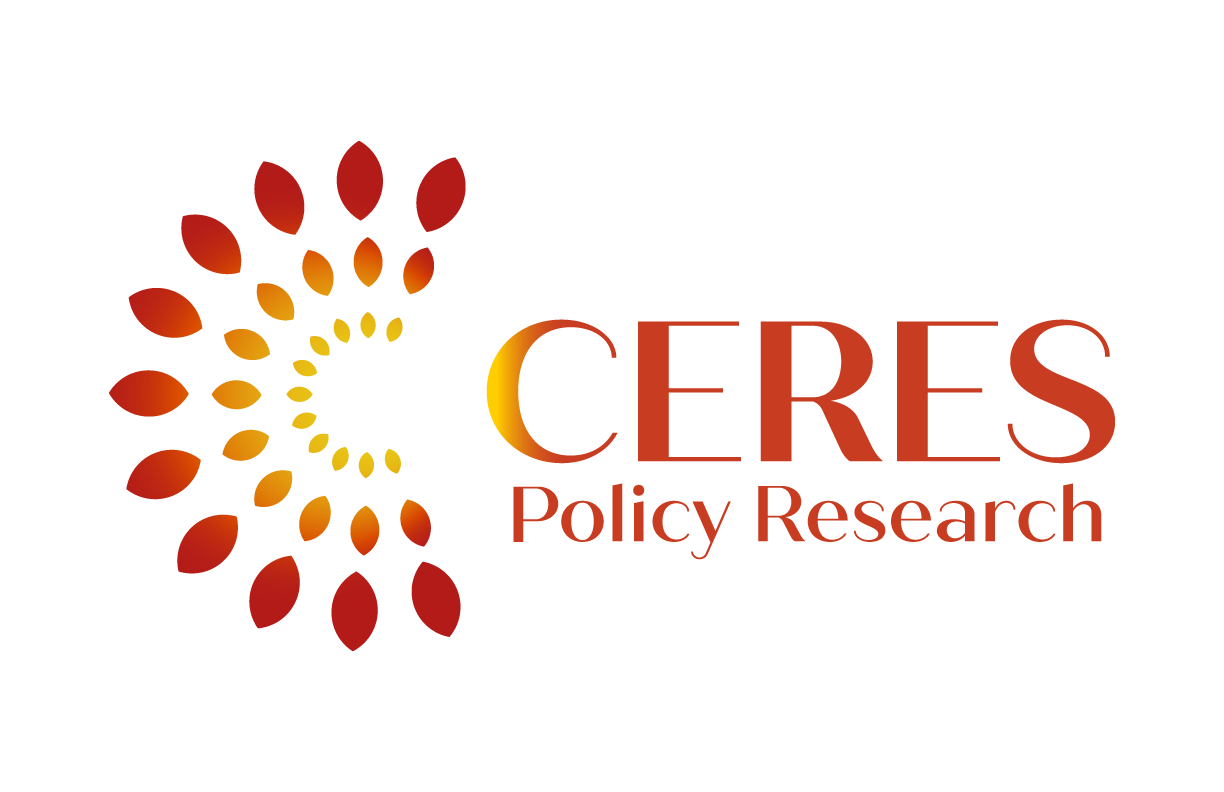
About Us
Ceres works with many types of clients and partners, including executive directors of community-based organizations, directors of government agencies, and philanthropic program officers. We are committed to deconstructing systemic oppression through our work with each of these stakeholders.
-
Ceres Policy Research is rooted in the belief that sowing community wisdom reaps widespread social change. We uplift that communities are a diverse ecosystem and hold that each member group holds an essential role to cultivating growth that benefits our society.
-
While traditional research methods are often extractive and disruptive, our approach to research is grounded in mutualistic relationships that promote the well-being of and maintain the integrity of our partners and communities and their respective ecosystems. Our commitment to facilitation, research, and educational processes that are collaborative, and iterative is demonstrated through the trust of our long-standing relationships with communities, advocates, systems, and philanthropy alike.
-
Deeply committed to structural racial, gender, and immigration justice, Ceres operates using a cooperative structure. We combine a relatively vertical pay scale with clear steps to promotion. Our vision is to build an organization run by partners rather than a single leader. Ceres also aims to build generational wealth for all employees.
Angela Irvine, Ph.D., Founder and Principal Consultant
Dr. Angela Irvine (she/her) has more than 25 years of experience in education and social policy. Raised in Santa Cruz County, CA, Dr. Irvine earned her BA from UC Berkeley in 1988, her secondary teaching credential from St. Mary’s College of California in 1989, and her PhD in sociology from Northwestern University in 2002 while simultaneously serving as a National Science Fellow (NSF) in public policy and program evaluation. Dr. Irvine spent eight years running Ceres Policy Research from 2002 through 2010, four years as research director at the National Council on Crime and Delinquency (NCCD), and two years as a Vice President at Impact Justice. She has studied housing, education, health, and criminal justice policy. Her primary research has focused on youth deincarceration; lesbian, gay, bisexual, questioning, gender nonconforming and transgender (LGBQ/GNCT) young people in the youth justice system; the links between school discipline and justice involvement; the links between the child welfare and youth justice systems; and the impact of the criminalization of immigration on families and communities.
Aisha Canfield, M.P.P., Director of Ceres Institute
Ms. Aisha Canfield (she/her) has been a community researcher and facilitator for the past twelve years. Her research largely focuses on the disproportionate detention of LGBT/GNC youth, identifying systemic points of disparity, such as contact with child welfare. In addition to her research, Canfield trains juvenile probation departments across the country to implement data collection systems. She also evaluates community-based providers serving system-involved youth. She has served as a facilitator of two racial justice coalitions seeking reparations for the harm caused to Black and Brown communities by county agencies. She is also an expert on the Prison Rape Elimination Act, providing specialized training about the needs of LGBTQ prisoners. Canfield challenges all of these organizations to have an honest dialogue about disproportionality and move towards cultural affirmation.
Kerby Lynch, Ph.D., Director of Research and Facilitation
Dr. Kerby Lynch (she/her) is a critical Black studies scholar of human geography, political economy, and intellectual history. She holds a BA in African American Studies with a concentration in Gender and Sexuality and most recently completed her Ph.D. in Geography, both from the University of California at Berkeley. Dr. Lynch currently serves as the Director of Research and Facilitationfor Ceres Policy Research and conducts social science research on community reinvestment, racial equity analysis, and reparations policy implementation. Dr. Lynch is dedicated to capacity building for non-profit organizations to ensure their mission and values align with program outcomes. She seeks to work with organizations and social justice leaders to secure funding and strategically plan for how to build programs that transform society.
Justin Brown, C.P.A., Finance Manager
Justin Brown (he/him) is responsible for Ceres’s overall financial management and operations. Brown began work with Ceres in 2017 and brings more than 10 years of finance and accounting experience. He has specialized knowledge and skill in managing government and foundation grants as well as helping small business build finance and organizational infrastructure. Brown holds a bachelor’s degree in economics from Earlham College and a master’s degree in accounting from the University of Southern California. He is a licensed Certified Public Accountant in the state of California. Brown also serves on the board of directors and chairs the Finance Committee for the ACLU of Northern California.
Crystal Farmer, Program Manager
Ms. Crystal Farmer (she/her) graduated from U.C. Santa Cruz in 2019 where she studied Sociology with a minor in Latin American and Latino Studies. She has worked with Ceres Policy Research since September, 2017. She is a senior research assistant, leading data collection, data analysis, and writing for many of our LGBTQ+ youth and immigration projects. She also manages the flow of our projects. supporting the finance department to providing research and administrative assistance. She has focused content expertise on the intersections of race, ethnicity, sexual orientation, and gender identity.
Sydney Jacobs Allen, Senior Research Assistant
Ms. Sydney Jacobs Allen (she/they) graduated from Mount Holyoke College (MHC) in 2018 where she double majored in Anthropology and Africana Studies with a minor in Non-Profit Organizations. During her time at Mount Holyoke, Jacobs Allen dedicated both academic and professional development to collaborating with, and working for, the Community Based Learning Program of MHC; working towards meaningful and sustainable relationships with community members and partners. Sydney has engaged in work with homelessness, LGBTQIA+ youth, as well as foster care and adoption systems. Sydney has taken the culmination of her studies and lived experience and narrowed her focus on mental health within the black community and communities of color. As a senior research assistant, she leads many of the data collection, data analysis, and writing of our racial equity and foster youth projects.






